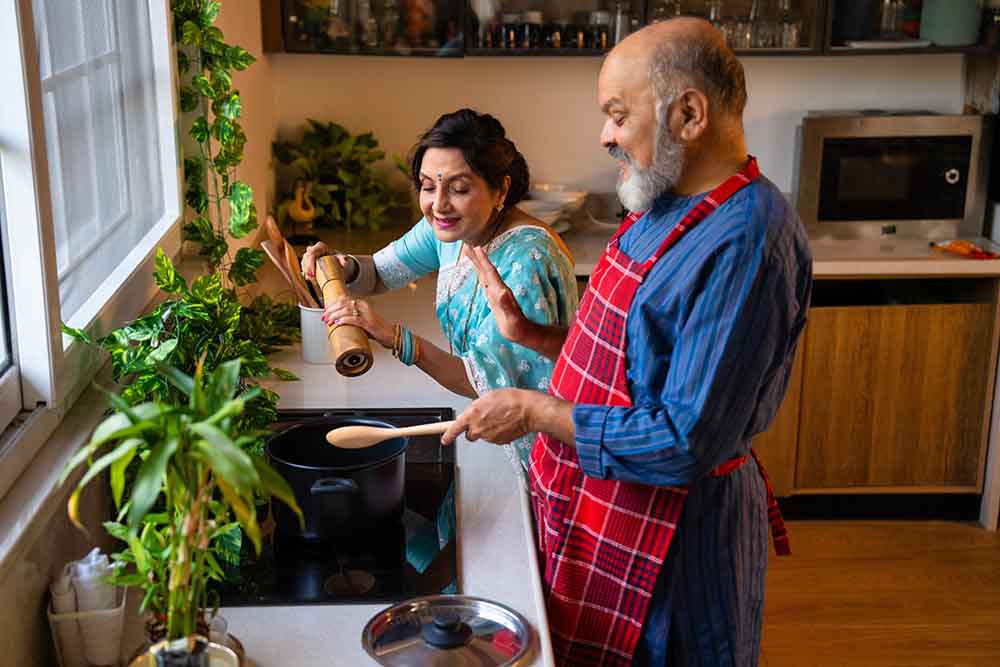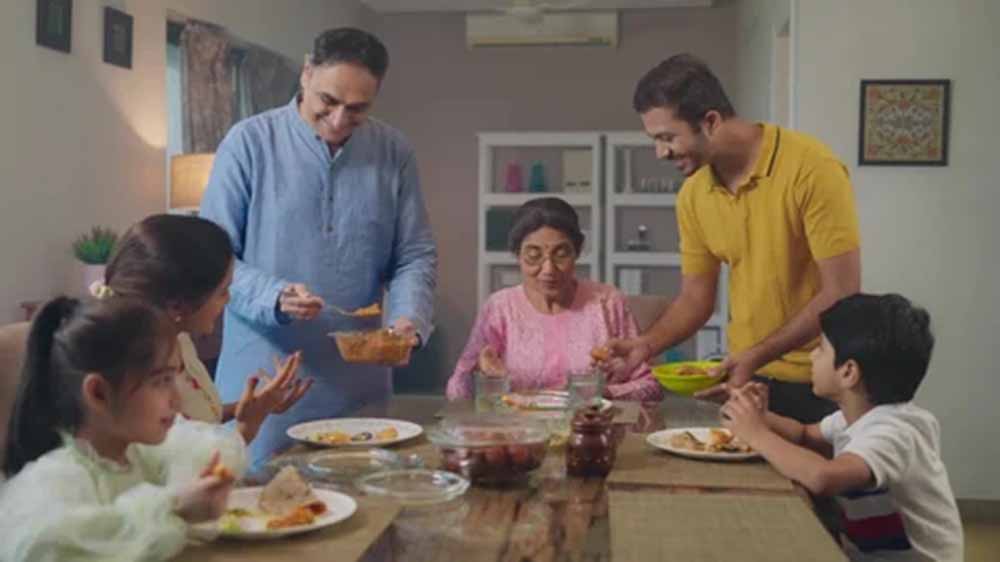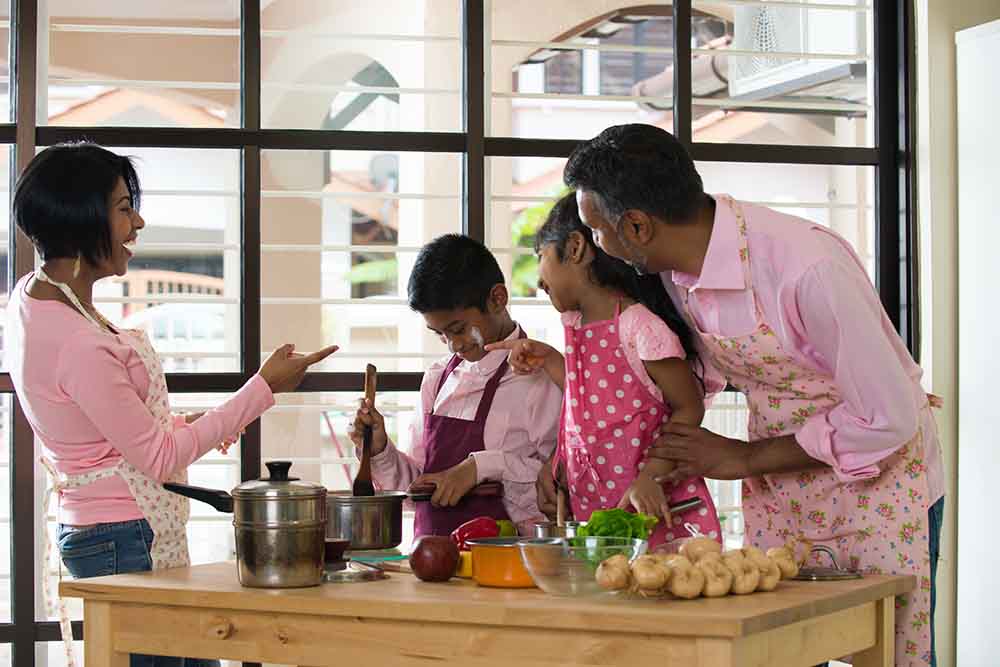Painting the usual household scenario leading up to festivals. Mothers and other female members of the family cooped up in the kitchen whipping up special dishes, bustling around the house cleaning, decorating, or entertaining guests. The rest of the family is relaxed, dressed up, reading a newspaper, watching the television, or on their respective mobiles.
A couple of years ago, the brand Ariel gave us a groundbreaking campaign to ‘share the load’ but has this really been put into action? Why this voluntary exclusion? How can we change the narrative for good –whether it’s festival time or not? We asked the men in the family how they can realistically change this picture. Let’s read on to find out!

‘I usually step up to help mom in the kitchen during such occasions, whipping up murukku (spiral shaped savoury snack), helping with clearing the dishes and other such chores. I also take care of cleaning to a certain extent and running errands, so she doesn’t have to burden herself looking into everything. Let’s ensure men and women divide tasks at home so that we get done with chores sooner and spend quality time with each other. This year, I want to see mom and other female members of the family smiling and relaxed, not exhausted. Together, let’s create a more equitable and joyful festive experience!’
- Siddharth P

‘I can’t make laddoos and karanjis, so I help my wife in other ways. I shop for the ingredients, fry the rava, chop the dry fruits, and perform other miscellaneous chores because I don’t have the skills to cook. Initially, we made the entire faral (Diwali snacks) at home, but figured that my wife couldn’t make a few things like chakli. So now, we’ve mutually agreed to buy those items from out and simply make the ones at home that we make best! This has eased her stress and together, the work is done faster.
My advice to husbands, fathers and sons is to help your wives, daughters and mothers with whatever you can. Share the mental and physical load that accompanies festivities. I never felt like ‘this is her job’. Not once. It was more like ‘she can do it, but how can I be of help to her.’ So, the sharing of the load, as they say, came naturally to me.’
- Vishwas Rajaram Naik

‘For women, especially in my family, the household is their domain, whether they are home-makers or working women. Since they like to oversee each and every aspect, I’ve taken up tasks that can be ticked off from the checklist, basis the feedback given by my daughters and wife. Even if women like to be in control of things, men can definitely contribute by being around and available to help them with miscellaneous and ancillary tasks as and when they crop up. I also take it upon me to entertain my wife to keep the mood light and jovial and see to it that the she doesn’t get overwhelmed.’
- V. Pattabiraman

‘I’ve experienced two kinds of Diwali. One with my parents before marriage and the other with my wife post marriage at my own place. At my parents’ house, my mother used to do majority of the work at home for Diwali, while I used to take care of chores like cleaning and making purchases. However, after marriage when we celebrated our first Diwali, I realised how much my wife had to do to entertain guests I had invited for a get together. Together, it took us the entire day to complete the chores like cleaning, decorating and making sweets. At that time, I realised I could order in our requirements through an app, but I stopped and thought for a bit that my mother used to do all of it by herself! My wife and I share our own errands equally, and then help out both sets of parents to make sure they don’t have to struggle. At the same time, we have also taught them how to use apps and order in whatever they want, in case we are not around.’
- Vivek Mohan
‘From a young age, I’ve always been actively involved in sharing responsibilities with my mother and sisters. Whether it was assisting with their work or contributing to household chores, I found fulfillment in these shared duties. This sense of responsibility has grown and evolved with me over the years. My mother, a dedicated homemaker, shoulders a multitude of responsibilities. Whether she asks for help or not, I help her out with grocery shopping, cleaning, cooking and other household tasks. I believe that these shared experiences have not only strengthened our bond but have also instilled in me a strong work ethic and a sense of gratitude.’
- Harish Iyer

‘We can step up and contribute by chopping vegetables, purchasing all the materials for the festival from outside to reduce the time and workload for the female members of the house. Plus, be on standby for any help required within the kitchen. Also, post the festivities, plan a vacation somewhere like a resort, especially where spa therapy is available to pamper the women of our house - as a small token of gratitude.’
- Abhinand Mishra